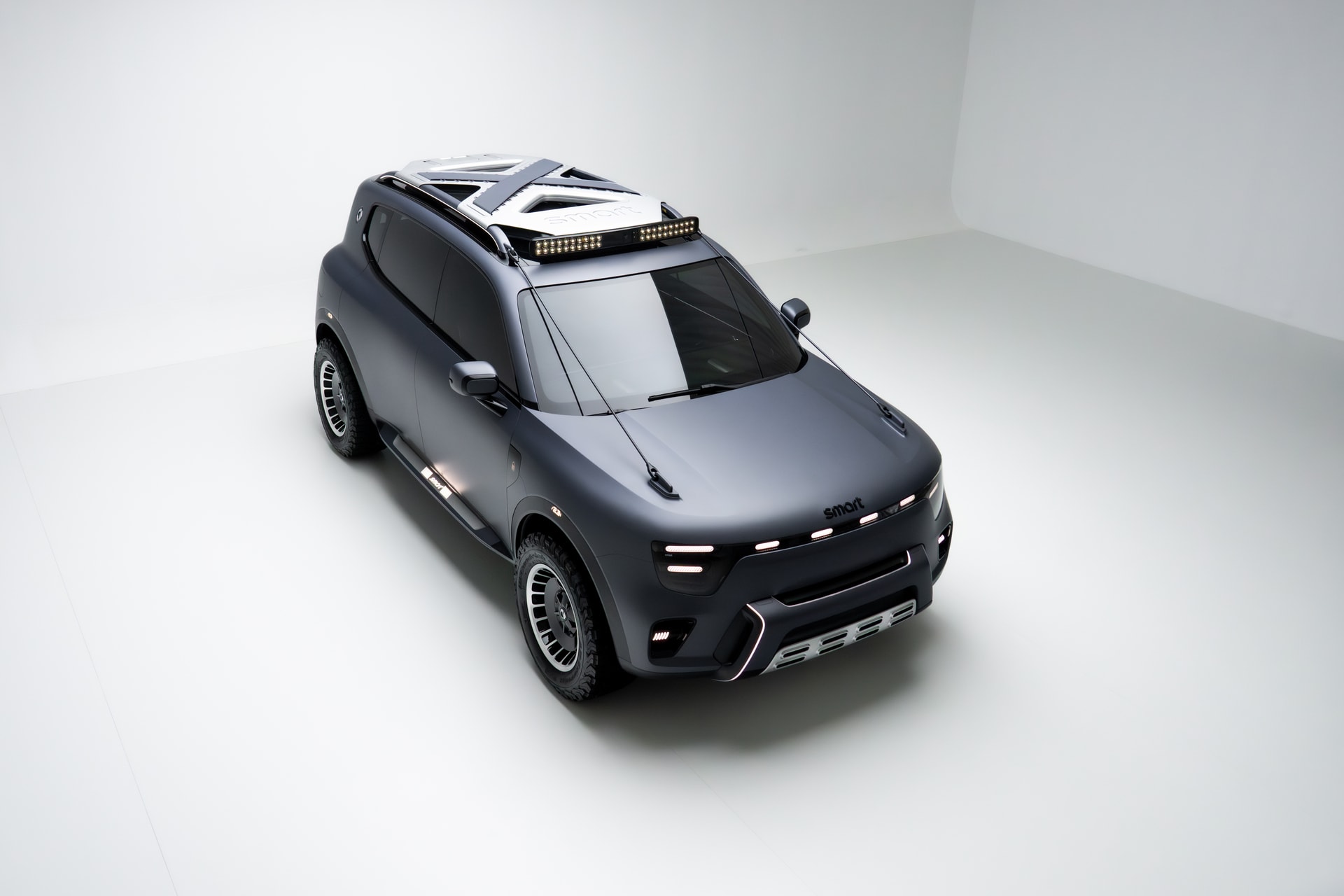
Nowadays, ‘smart’ is an attribute nearly all car manufacturers like to appraise in their products as if it were something extraordinary and absolutely, quintessentially, vitally cherished by buyers. But Smart has been the talk of the trade for over 25 years now, believe it or not. Not the tech-clad paradigm, but the car brand – the tiny automobile that could fit two passengers while still being small enough to fit inside the engine bay of a 1960 Cadillac Eldorado.
The Smart #5 is a mid-size SUV (4,705×1,920×1,705 mm, with a wheelbase of 2,900 mm – that’s more than the entire length of the original Smart Fortwo from 1998 ( 2,540). It has five doors (like any proper Sports Utility Vehicle) and can accommodate five occupants. It rides on wheels ranging in size from 18 to 21 inches and weighs a hefty 2,450 kg for the top trim level. That’s three and a half Fortwos microcars from the late 90s’ worth of body mass.
The Smart#5 is an all-electric automobile – little surprise here – but the big news comes from the powertrain combos. Two versions are powered by a single electric motor mounted on the rear axle, producing 250 kW (335 hp / 339 PS) in base form or 267 kW (358 hp / 363 PS) in a more lively variant.
The step-up is a dual-motor drivetrain with a front unit rolling out 165 kW (221 hp / 224 PS) and the one at the back an extra 267 kW (358 hp / 363 PS) for a total power output of 432 kW (579 hp / 587 PS). Say what?! Hold your kilowatts, everyone; there’s more.
A front motor of 165 kW (221 hp / 224 PS), working in tandem with a feistier rear one firing 310 kW (416 hp / 421 PS), providing a combined power of 475 kW (638 hp / 646 PS). That’s Porsche 911 Turbo S 992 territory, albeit only in horsepower figures. The top speed is set to 200 kph (124 mph) for the first three versions, while the most powerful is marginally faster, at 210 kph (130 mph).
The two Rear-Wheel Drive models pack lithium iron phosphate (LFP) batteries, while the AWDs use nickel manganese cobalt (NMC) cells. The capacity is not among the data released by the Chinese authorities. Smart #5 comes with an 800-Volt architecture and 4C-rated charging.
In plain driver parlance, that’s four full charging cycles in sixty minutes or 100% in a quarter of an hour. The launch date is unknown, but previous estimates by CarNewsChina expect it to make landfall no sooner than this October Q4.

 –>
–>








